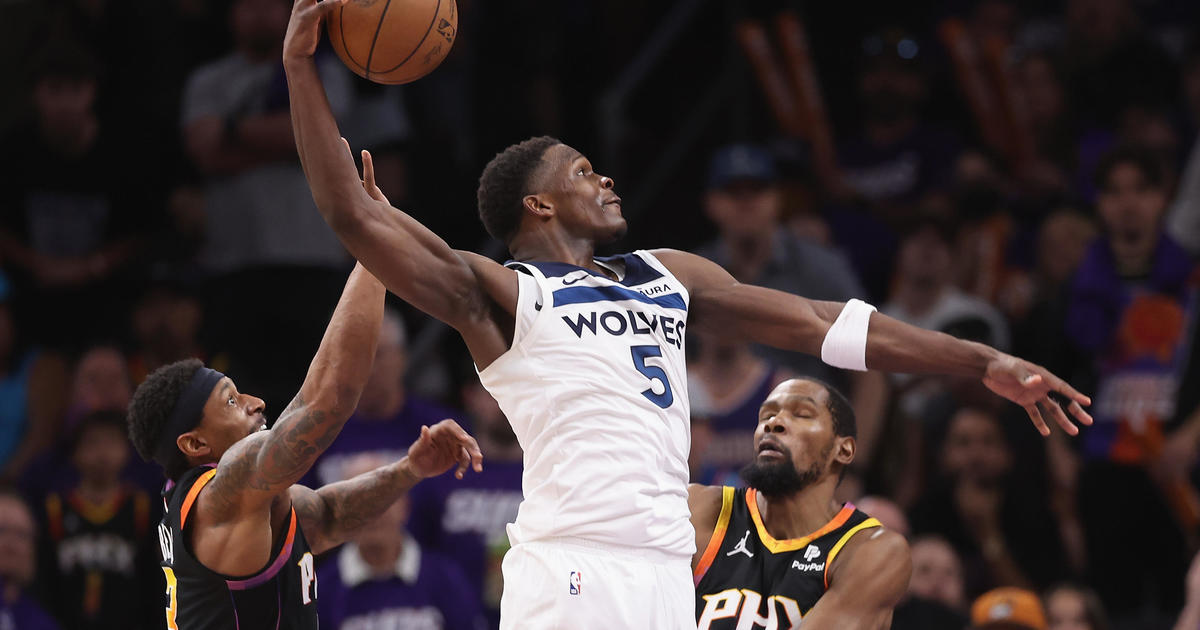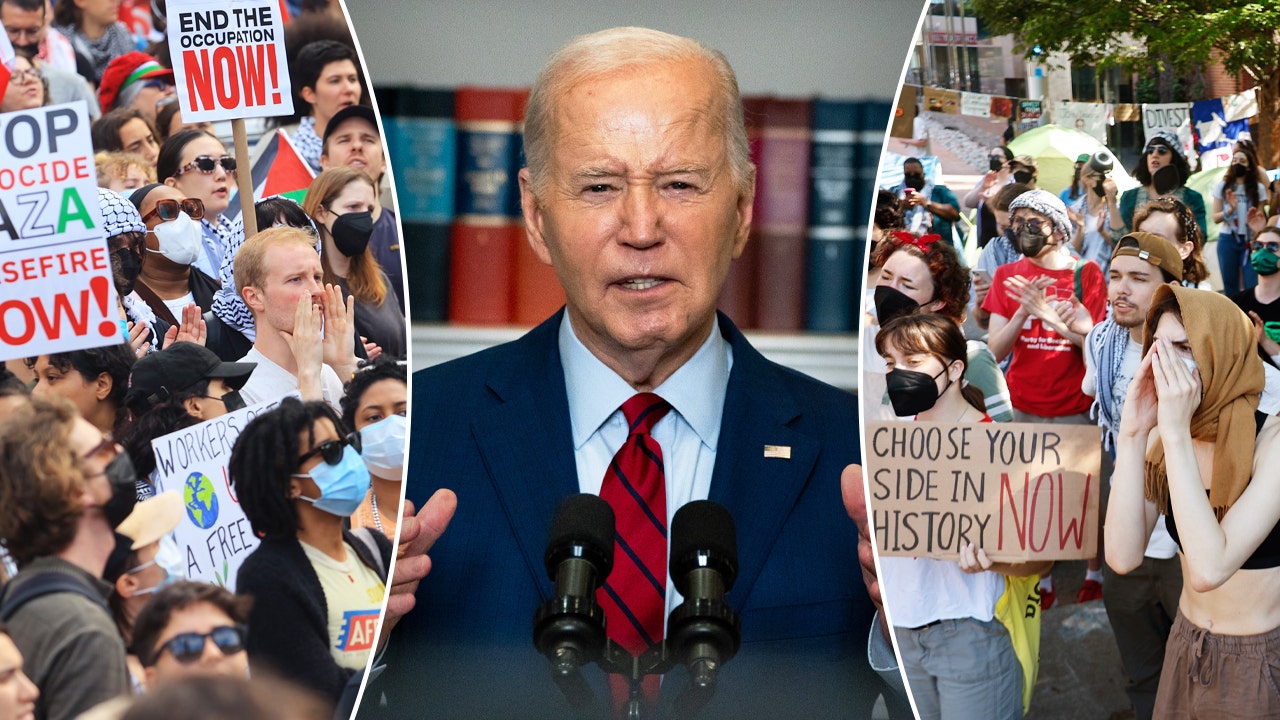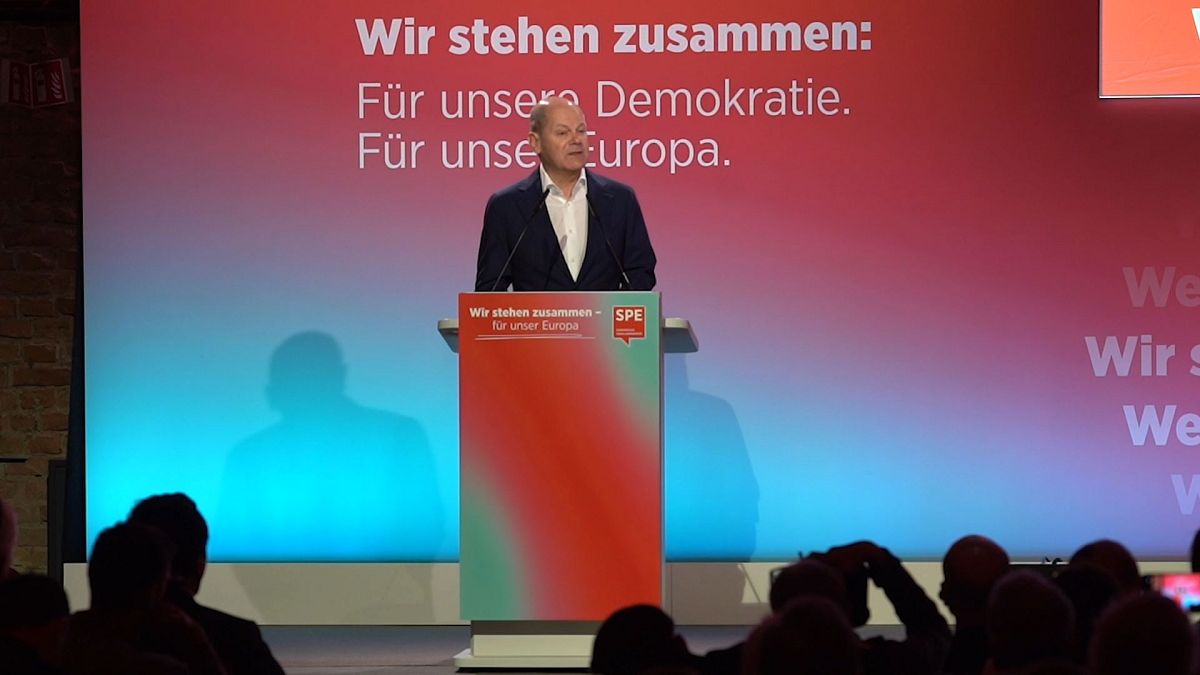Augusta, GA
Few stores, but mighty: Georgia retailer boasts 6 million-dollar salespeople in 2023 – Furniture Today

AUGUSTA, Ga. — In most years, Weinberger’s Furniture & Mattress Showcase here tops $10 million between its three showrooms. Sounds like your typical community furniture store success story, right?
It is, but that’s not all. Look again, and you’ll find that the family-owned, 92-year-old retailer had six of its retail sales associates eclipse $1 million in sales in 2023. In all, those half dozen salespeople accounted for $7.5 million of Weinberger’s total sales volume.
Vice President Karly Weinberger, a fourth-generation member of the ownership family, told Furniture Today that six members of its Presidents Club (Weinberger’s name for its $1 million salespeople) is a record, although many of this year’s members have hit those numbers in the past. One of the salespeople, Susan Crow, set a new Weinberger’s record when she topped $1.5 million from the Augusta store.
In addition to Crow, Cambria Davis, Matthew Bruecks and Lisa Peeler topped $1 million from Augusta, while Kim Mattingly and Yolande Grogan were the two Presidents Club members from Weinberger’s Lake Oconee store.
In a year when many retailers reported sales slumps, what kept Weinberger’s going strong? Weinberger said a lot of it had to do with the store’s strong custom business.
“Our traffic is down, but the traffic that is coming in is spending and spending more. They’ve made up their mind and have done their research,” she said. “We’ve also got a good niche; if you want something truly custom, you can get it from us.”
And once in the store, she said the team of salespeople work diligently to earn the customer’s trust. She said that’s what separates a great salesperson from good ones, and she was fortunate to have six great ones in 2023.
“I think it’s the way they connect with the customers. A customer comes in, and they find out what their needs are,” Weinberger said. “Obviously, they satisfy those needs, and then they search for what else they can do. They keep in touch with those clients throughout the year, telling them about sales and getting them to pull the trigger in those periods.
“Those specific people who had $1 million are those who connect with the customer and get in their homes,” Weinberger continued. “When somebody trusts you enough to bring you into their home, it creates that connection that keeps them coming back.”
Several of the salespeople have been with the company for a while, which helps. “That is huge. You can’t put in words how valuable that is,” Weinberger said. “To know you’re going to open your doors and be able to advertise to customers that they will be able to take care of them.”
Weinberger noted that two have youth and enthusiasm on their side, which shouldn’t be overlooked.
“Two of our writers are in their early 20s, so we’ve tried to invest in young people. They haven’t even hit their potential yet,” she said. “To keep somebody like those two is really valuable.”
To celebrate, Weinberger said leadership took the six Presidents Club members to a nice dinner, plus they get to include the honor on their business cards and a cash bonus. She said those perks create plenty of incentive among the sales team.
“It’s a number all of our sales associates strive toward and ask how to get to that number,” she said.
So what’s next? “Now that Susan’s gotten $1.5 million, she’s got to keep going and break that ceiling, and we’ll create a whole new club for her,” Weinberger quipped.
See also:

Augusta, GA
Metal casting plant promises 350 jobs in Richmond County

AUGUSTA, Ga. (WRDW/WAGT) – A company that makes lightweight components for the mobility and energy industries will invest more than $184 million in a new manufacturing facility in Augusta.
The GF Casting Solutions plant will create 350 jobs for Richmond County, according to the announcement from Gov. Brian Kemp.
The company, a division of Switzerland-based Georg Fischer AG, produces parts made from aluminum, magnesium, iron and super alloy for light vehicles, trucks, aerospace, energy, off-highway vehicles and industrial applications.
The facility at the Augusta Corporate Park will produce cast aluminum parts, with a special focus on large structural components for the automotive industry.
Operations are expected to begin in 2027.
LOCAL JOBS:
- The company will hire for roles in manufacturing and automation over the next few years. Jobs will be posted as they become available, and interested individuals can learn more about careers with GF at www.georgfischer.com/en/career.html.
“I am truly excited to see the second, large European investment in the Augusta Corporate Park,” said Mayor Garnett Johnson.
He said the city and the Augusta Development Authority have worked to make the location “a premier industrial park in the Southeast United States with our investment in water, sewer, roads, and growing our workforce.”
Also at the Augusta Corporate Park is a metal recycling plant owned by European company Aurubis.

“Georgia is proud to carry the title of the No. 1 state for business to companies across the globe, bringing opportunities to communities in every corner of the state,” Kemp said. “Having met the great team at GF Casting Solutions during our recent mission to Switzerland, we could not be more excited to welcome them to the Peach State. Congratulations to Augusta and Richmond County for securing these jobs of the future for Georgians.”
Carlos Vasto, president of GF Casting Solutions, said the new plant will help the company “become truly global in the e-mobility market.”
Copyright 2024 WRDW/WAGT. All rights reserved.
Augusta, GA
Pilot Remembered as 'Outstanding Individual' After He Died in Georgia Neighborhood Plane Crash
:max_bytes(150000):strip_icc():focal(750x171:752x173)/jason-mckenzie-plane-crash-050324-1-fd5c599f2f784db28a4d1be83a76e5b0.jpg)
Jason McKenzie, a pilot and associate director of philanthropy at Augusta University, is being remembered as an “outstanding individual” after he died in a Georgia neighborhood plane crash, his employer, church and friends confirmed to local outlets.
The single-engine Beechcraft Bonanza A36 that McKenzie was flying crashed along Hillcrest Avenue in Augusta on Thursday, May 2, ABC affiliate WRDW reported. The outlet added that he was the only person on board and that “there were no other injuries” on the ground.
“I think that was a miracle,” a neighbor, Lisa Lewis, told WRDW. “I’m just thankful no one else on the ground was hurt.”
Lewis, who lives on Hillcrest Avenue, described the plane as “way louder than normal, and it got louder and louder and it just sounded like it was right outside the window.” After hearing a “loud banging pop sound,” she told the outlet that her electricity went out.
Then, locals spotted the scene of the crash where the flames “were so tall,” Lewis recalled, adding, “It could have been so much worse.”
According to WRDW, the plane took off from Daniel Field Airport in Augusta and was headed for New Haven, Conn. The aircraft only reached an altitude of 625 feet before crashing. Four minutes after takeoff, it clipped a tree and came down between two homes.
First responders are calling McKenzie a hero, per CBS affiliate WAFB, while Augusta Fire Chief Antonio Burden told WRDW that he “can only credit the pilot for that situation — for not involving another structure.”
Dean Newman, a good friend of the pilot who played golf with him and his son, told ABC affiliate WJBF that the “community has really lost an outstanding individual in Jason McKenzie, and he is going to be greatly missed.”
According to CBS affiliate WIAT, the Federal Aviation Administration shared that McKenzie had 800 hours of flying time last year, and the National Transportation Safety Board is investigating the crash.
Never miss a story — sign up for PEOPLE’s free daily newsletter to stay up-to-date on the best of what PEOPLE has to offer, from celebrity news to compelling human interest stories.
In a statement shared on Facebook by Will Dyer, a pastor for First Baptist Church of Augusta, he said McKenzie was a “devoted husband, father, and son” who “loved his community, his work, and his church.”
“Jason McKenzie was my friend,” Dyer continued. “We spoke on the phone almost every week and I never left a phone call with Jason where I didn’t have a smile on my face. My life is better because Jason played a role in it.”
McKenzie is survived by his wife, Stephanie, his son, Patrick, and his mother, Becky, the church confirmed to WIAT.
Augusta, GA
From the archives: A Q&A with Peter Oosterhuis, the hardest-working man in golf broadcasting
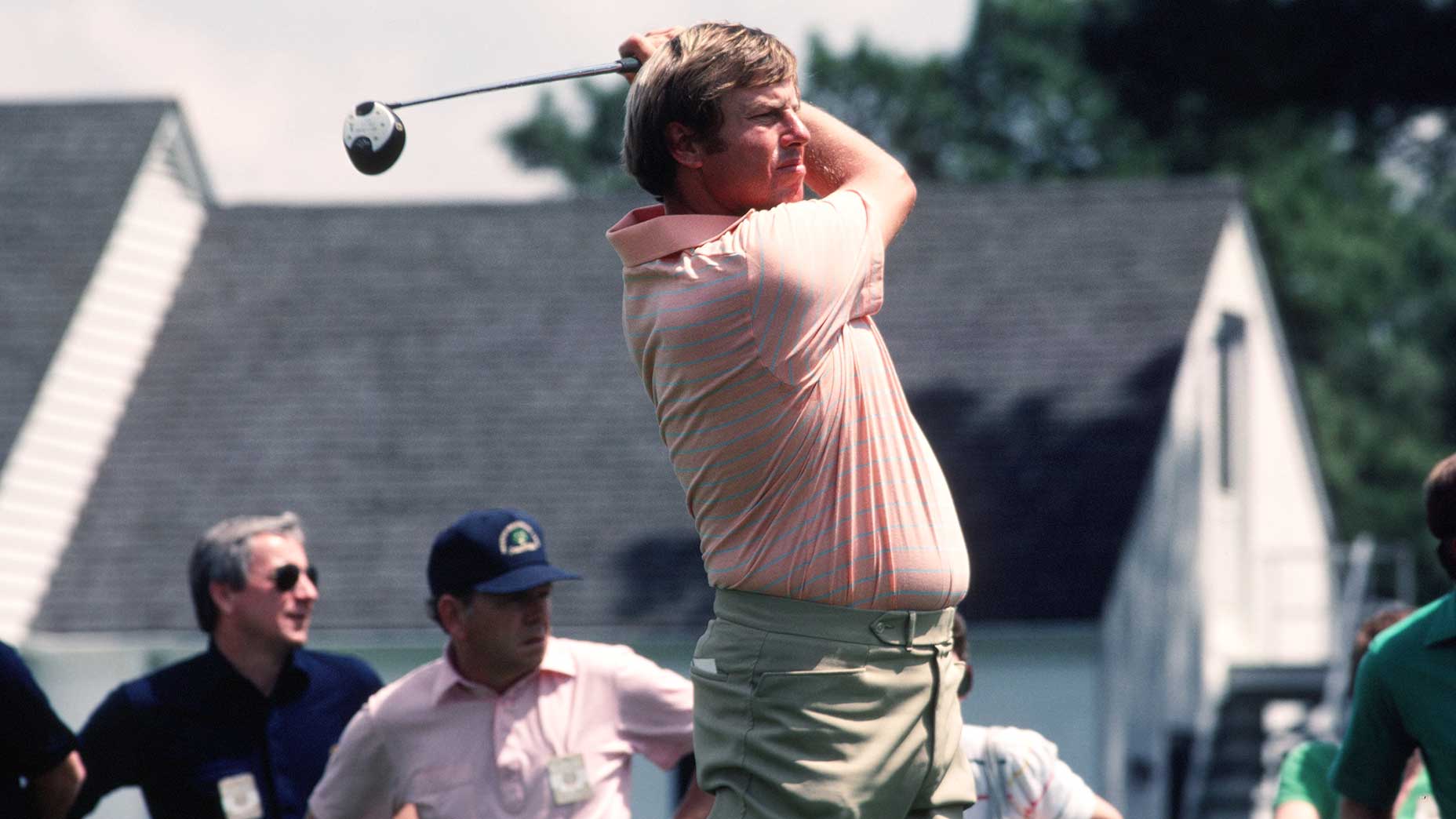
Peter Oosterhuis watches his shot during the 1984 Masters at Augusta National Golf Club in Augusta, Ga.
Augusta National/Getty Images
Peter Oosterhuis, a six-time Ryder Cupper who won 28 times professionally and was the longtime voice of the 17th hole during CBS’s Masters coverage, died on Thursday. Oosterhuis was 75 years old, and he passed a day before his 76th birthday. This interview originally appeared in the October 2007 issue of GOLF magazine.
***
When your colleagues include Nick Faldo, Gary McCord and David Feherty, it’s easy to get overshadowed, even if you’ve won four Orders of Merit. “I can’t compete,” admits Peter Oosterhuis, the 59-year-old European Tour icon-turned-golf analyst for CBS Sports and The Golf Channel. Thing is, the 6-foot-5-inch Brit doesn’t need to compete. With dogged preparation (Oosterhuis keeps handwritten notes of every event he covers and frequently trawls the media center for other nuggets; he also came to a recent interview armed with a PGA Tour media guide, and twice fact-checked himself), an uncluttered delivery and an accent so dignified that it adds instant credence to his observations, as one of the game’s most composed and calculated broadcasters, the yin to McCord’s yang.
Ironically, Oosty, as he’s been known since he first grabbed headlines as a teen phenom and later for his sterling Ryder Cup play, cites his lack of preparation for his failure to excel on the PGA Tour.
“Maybe I didn’t work as hard as I should have,” he says. After leaving the European Tour in 1975, he won just once on the American circuit — in Canada, actually — before unceremoniously retiring for a job in a New Jersey pro shop. It’s been an up-and-down ride for the pride of Dulwich, England, but one that has landed him, from his customary perch above the 17th green, squarely back on top.
You have a reputation for doing your homework before calling a tournament. Do you outwork the other analysts?
Well, they may be doing things I’m not doing as well. They may spend more time on the course and more time on the driving range. I get the paperwork, and if somebody hasn’t handed me all the paperwork I need, I go to the media center to check what’s there. It’s just a routine I have of accumulating all the papers, the media guides, then throwing away a lot of what I don’t need. There’s not time to use everything.
Sounds like hard work. McCord says he reads magazines in the tower.
Yeah, I think he does. But I think he also has a guy sitting next to him who’s very good at feeding him solid information that he might need. I have a guy, too, but I think Gary’s guy has taken it upon himself to feed some really good stuff to Gary so that he comes up with a stat every now and then that’s relevant. CBS is a great team, because we all bring something to the table. Whether somebody says that I do more homework than the other guys, it doesn’t matter, because the result is the team does a great job of covering a golf tournament.
Does it bother you that McCord and Feherty get more attention than you?
No, I can’t compete. They’re unique characters. I mean they’re both brilliant in their own way. We know we cover different angles, and whether it’s some crazy Irishman or a California dude [laughs], it all comes together.
Has your charming British accent been an asset to you in broadcasting?
[Laughs] Well, I’m guessing it has helped me. But I haven’t tried to change my accent. That’s just the way I am. So I’m lucky in that way. I was lucky that I went to a good school in southeast London where you had to talk properly or someone would tell you, “Get your act together and talk properly.” It keeps me in a job.
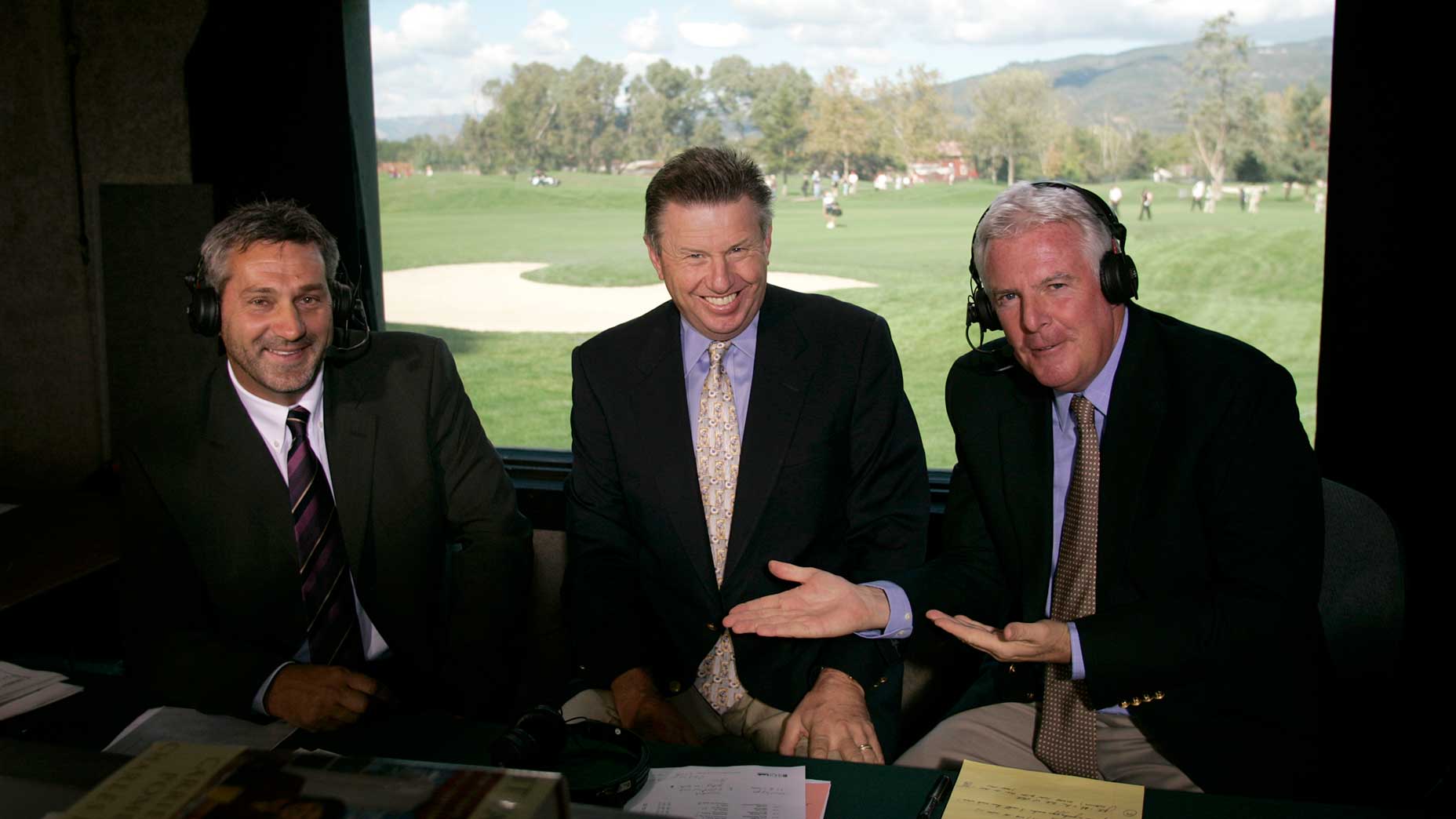
Chris Condon/PGA Tour
What’s been your most memorable moment in the booth?
I was in the tower at 17 when Tiger won his first Masters in 1997. At that time, the 18th hole was only 400 yards, not 460-something. So I’m right behind the 17th green and I could look out of my tower straight up 18, and the tee’s right there. I saw Tiger hit four awesome power fades up the 18th fairway, almost identical shots each day.
You also witnessed that bizarre sequence at Torrey Pines in 2001 when Phil Mickelson and Frank Lickliter both hit drives out of bounds in a playoff. You called the action.
That’s right. They both hit balls down into the ravine, and then they were deciding if they had to go back to the tee. Mickelson had hit an awesome provisional and then he realized that even if he found his ball he wasn’t going to play it. So he said, “Don’t look for my ball.” Then they suddenly found his ball. It was actually one of the CBS spotters who thought he was doing a wonderful job. So now Mickelson has to go back to the tee. He can’t play the provisional. He has to deem his first ball unplayable. That was an interesting one to call. I’m not a Rules expert, but I’ve got a rule book and decisions book with me in the tower, so given a couple of minutes I can find something relevant.
Having to explain obscure rulings must be one of the more daunting aspects of the job.
Well, that’s why sometimes we stall, because there are so many rules and so many decisions and so many clauses to each rule, you need to make very sure which one you’re talking about before you start making statements. I was involved in Tiger’s rock incident [at TPC Scottsdale in 2001, when the gallery helped Woods move a boulder near his ball that had been deemed a loose impediment]. Miraculously, I managed to find the two decisions that were relevant. Other people were saying, “No, that’s ridiculous. He can’t do this and he can’t do that. The Rules official doesn’t know what he’s doing.” And I just read the two decisions.
CBS must think highly of you to park you at 17.
I’ve been at 17 the whole time. When Ken Venturi was thinking about his retirement they tried me out in the 18th tower for six or eight events alongside Jim Nantz. And, whatever, I’m not an 18th tower [kind of guy].
Why didn’t 18 work out?
I did my thing, and I was happy with the way it went. In retrospect, you can see when Lanny [Wadkins] came along, he had a combination of things at work: U.S. Ryder Cup captain, major championship winner, multiple winner — and an American. It just made more sense for an American network.
But Faldo’s not American.
Yes, but Faldo’s a former No. 1 in the world. In retrospect, being at the 17th I don’t have to wait for Jim Nantz to set me up to say something. It’s my hole, and I can speak when I have something to say.
Has not winning a major hurt your broadcast career?
Well, if I had won a major maybe I’d be in a different side of the business. Maybe I’d be playing the Champions Tour and designing golf courses instead of being in TV. The other way of looking at it is that just because you’ve won a major doesn’t guarantee you’re going to be a good commentator.
After the 2000 Masters, a TV critic for The New York Times wrote that “the Masters must be readying Oosterhuis’ 2001 credential for a trip through the shredder…
What?!
…How else to explain Oosterhuis’ Bill Walton-like description of Vijay Singh’s missed putt on the eighth hole of Sunday’s final round: ‘That is a horrible misjudgment of the line. He knew it was going to be slick, but he just got it started in the wrong direction — about the worst putt we’ve seen.’”
What’s wrong with that?! Let me read that! [Laughs] What’s wrong with that?!
Well, I suppose he was saying that in light of McCord’s dismissal from the Masters, that’s the sort of biting analysis that can get you in trouble there. Is that not the case?
Well, I wouldn’t… I don’t know. I’m criticizing Vijay’s horrible misjudgment of the line. I mean, Vijay might be upset with me.
Is CBS too soft on its Masters coverage?
In what way? Or should I just say no comment right away?
Well, it’s common knowledge that Augusta National has a heavy hand in what CBS announcers can and can’t say.
What do you want me to say? It’s a unique event. The course is unique. The atmosphere is unique. And the relationship between the tournament management and the network is unique. I’m just trying to do my job. If I’m told, “Don’t say this and don’t say that,” well, then, I’m not going to say them.
Have you ever been reprimanded?
Um [laughs]… no, no, no… [pauses] … No, I don’t think so.
That’s hardly convincing.
Well, at my first Masters, every day the chairman of the tournament committee would come down and let us know everything we needed to know and answer any questions we may have. In the first meeting, I wanted to know what the Stimpmeter reading was, and I was told it was “tournament speed.” [Laughs] I haven’t asked many questions since.
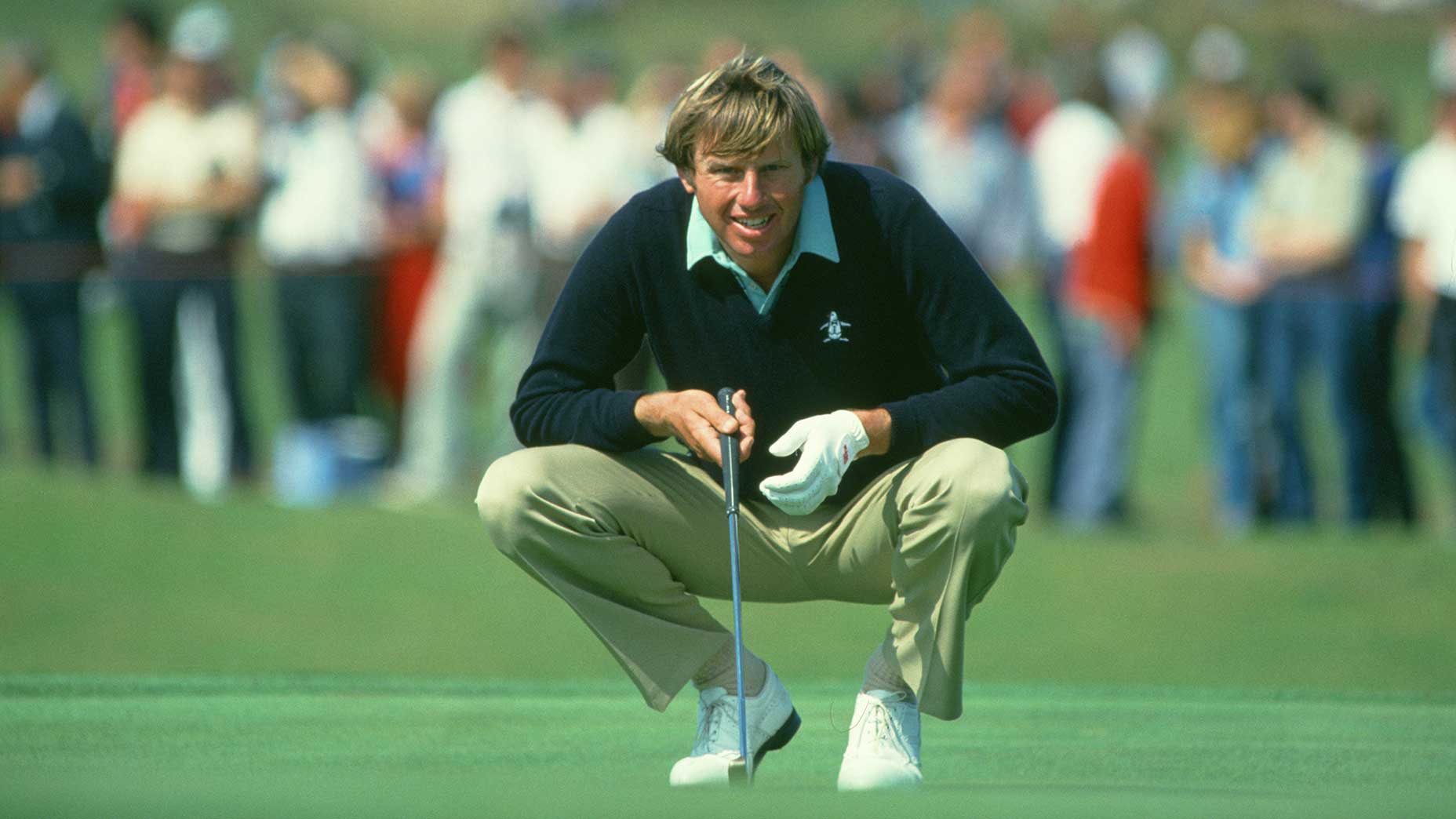
Getty Images
When you first swung a club did you know you had a special talent?
Well, I didn’t know. I was just a 12-year-old. It wasn’t like, “Peter’s going to be the next Tiger Woods, or the next Ben Hogan.” I just played. I played junior golf, I played for Surrey County and eventually played for England, and it all just kind of fell into place. I was 19 years old when I played for the Walker Cup team in 1967, which made me the youngest Brit to have done that.
When you turned pro in 1968, you had to play in events all over the world because the European Tour hadn’t formed yet. Did you get any help from sponsors?
No — well, I think maybe I had a deal with Slazenger, but not for very much. I came back from [my first] South Africa and Rhodesia trip and I’d played like 10 tournaments. I won about 700 pounds, and this was a huge success, literally [laughs]. I’ve got [newspaper] cuttings, which my parents kept, and they were like, “Wow, Oosty did so well in his first trip as a professional!” That’s what the British papers were saying.
And you continued to do well. From 1971-74 you won the Order of Merit four straight years. Did you feel untouchable?
I guess I felt every time I teed it up I’d be in contention. One year I played 13 events and was in the top three 11 times or something, with a couple of wins. But you can’t even compare the strength of the [European] Tour then to what it is now, so much so that when I tried to qualify for the PGA Tour in 1973, I didn’t make it. I flew from the Ryder Cup at Muirfield straight to the qualifying at Pinehurst, and I missed it.
But you made it a year later.
Yes, the next year I went through and qualified. If I was good enough to dominate the European Tour, then the next step was to go the States because it was much more significant and there was a bigger difference between the tours then, a huge difference. The European Tour wasn’t crazy about my leaving, but I didn’t have a choice really.
The European Tour has always had a reputation for having a wild side. Did you partake in any post-round hijinks?
A British golf writer wrote an article in 1973, and one of the things he talked about was, “Oh, here’s Oosty and he’s out here hitting balls and everybody else is having a good time in the clubhouse.” Like it was weird to be hitting balls after the round. I didn’t go out of my way to be a loner but maybe I was just trying to be the best player I could and I was a bit more focused than the other guys.
Did it irk you that Lee Trevino said he’d kiss his teammates’ rear ends if he didn’t beat you in your Ryder Cup singles match in 1973?
I didn’t know he’d said that at the time. One of the magazines had a photograph of him sitting down, and there’s Jack and Arnold and a couple other guys. They’ve got their slacks around their ankles — they’ve still got their underwear on — waiting for their payment. But, no, I didn’t know that. He still says he should have beaten me.
You halved the match, but even after the fact his pre-match pomp didn’t bug you?
I didn’t know about that until years later. I guess I should take it as a compliment that I must have played well enough to get Lee Trevino’s attention, that he was going to make it a point to beat me.
At the 1977 Ryder Cup, you teamed up with one of your future colleagues at CBS, Nick Faldo, and went 2-0 together.
First time I’d ever met him. He was 20 years old, a skinny kid. We teamed together well. In our four-ball match we were 3-down after four holes against Raymond Floyd and Lou Graham, and we came back and beat them. I’d help him line up putts and he’d make everything. If I was 10 feet away and he was 8 feet away, I’d just let him go and he’d make it every time.
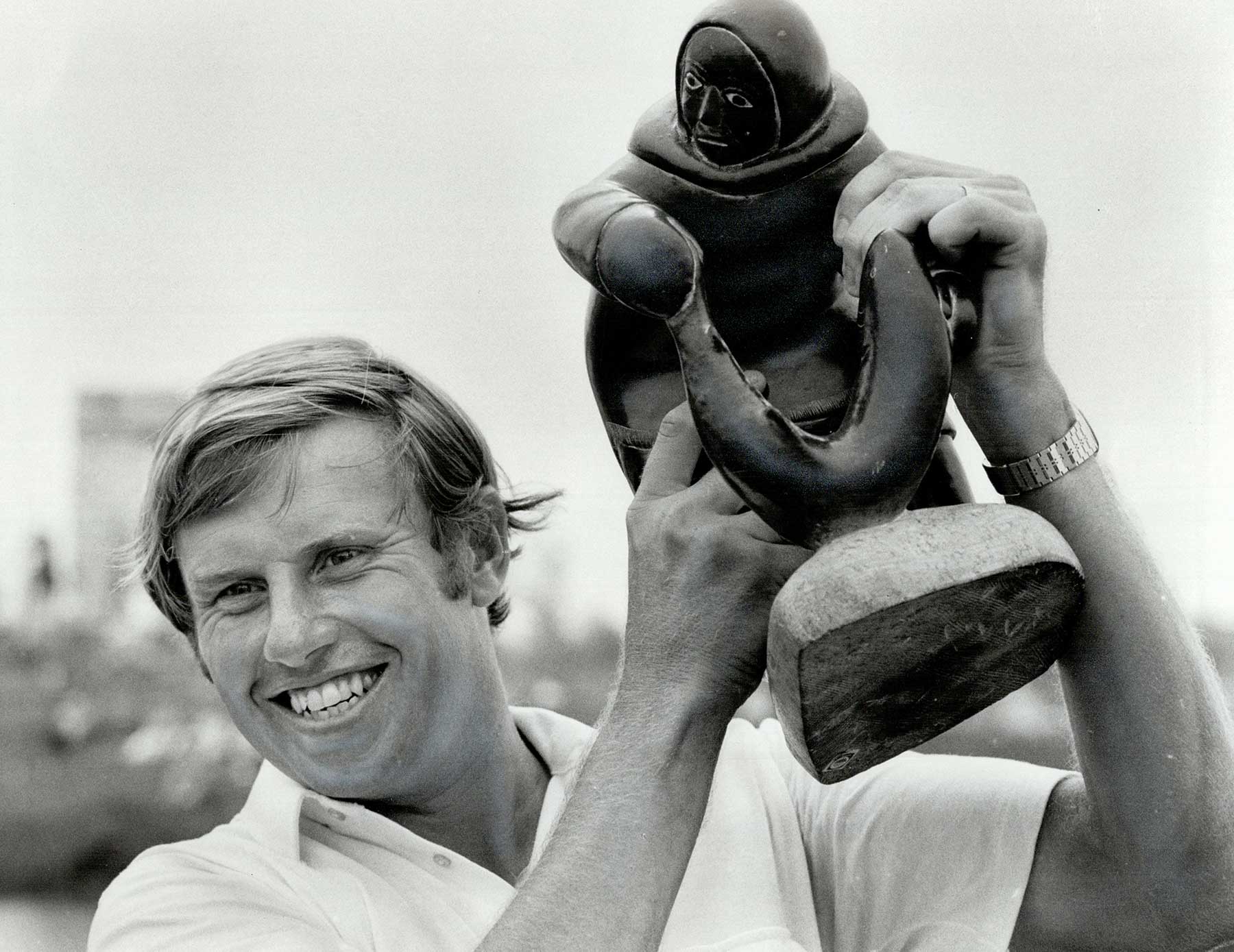
Toronto Star via Getty Images
Your best chance at winning a major was at the 1973 Masters when you had a three-stroke lead after 54 holes. How’d you sleep Saturday night?
Well, Sunday was washed out, and we played on Monday, so I guess I had that much more time to think about it. I don’t remember feeling under pressure or particularly nervous. I’d won some tournaments in Europe, I’d played well in the Ryder Cup and I’d played well enough to lead by three. Whether the extra day’s delay had anything to do with [losing the lead], I don’t know. Actually, before I’d even teed off Tommy Aaron had birdied the first three holes, so that probably had more to do with it than anything else [laughs]. I played a scrappy round, but didn’t play particularly well. When I bogeyed 15 — I blocked my second shot to the right — I was kind of done. I scrambled to make par on the last three and tied for third.
Did the pressure get to you down the stretch?
I always had a short swing and under pressure it would get just a little bit shorter and quicker, and I probably didn’t win as many tournaments. If my swing had been a bit longer, it would have been a bit more reliable and maybe I would have won a few more.
So your short swing was your Achilles’ heel?
Yeah, my short game was usually pretty good. But back then being tall [was a detriment] because there weren’t many choices of equipment. I used a steel shaft just a half-inch over standard even though I’m 6-foot-5, because anything longer than that was too heavy. So I had this short swing from growing up in Great Britain, where it’s windy and a lot of tournaments are played on links courses. I can’t stand up tall and make a big old swing because [the ball] would go straight up in the air.
In 11 years on the PGA Tour, you won just once, at the 1981 Canadian Open. Why did you struggle to break through in the U.S.?
I had a chance to win the Masters, had a chance to win Pensacola. Obviously my record against the top Americans in the Ryder Cup was good. I don’t know. I came over to the States and I think maybe I was just happy that I was on the PGA Tour; at that time it was an achievement. Maybe I didn’t work as hard as I should have.
Your comments after your win at the Canadian Open were telling: “A psychologist friend of mine recently told me I had to change my attitude. I’ll be in 10th place after two rounds and then be content to sit there, I’d be finishing with 73s and 74s. That’s OK in Europe, but it doesn’t win for you here. It was a reflex reaction: if you don’t feel you can win, then losing doesn’t disappoint you so much.”
I said that? [Laughs]
There was clearly a sense of…
Resignation. I don’t know. I’m surprised I said it that way, but I guess if it’s a quote, it’s a quote.
It was a stunning admission.
Well, I wasn’t having all that many top 10s. I don’t think I was even fully exempt at the beginning of 1981. I was playing in Hilton Head, and [former Tour pro] Bert Yancey, who’d moved into teaching, watched me and he said, “How’s your game, Peter?” And I said, “Well, it’s inconsistent — one good shot, one bad shot.” He watched me hit a couple more balls and he said, “You’ve got no routine. You take two waggles before this shot and four before the next.” In five minutes I realized that I could be better: Stand back, decide what shot you’re going to hit, walk in, same number of waggles, hit the shot. That was in April of 1981, and I won the Canadian Open in the beginning of August. I should have gotten fitter, and gotten together with a psychologist.
But that’s not what guys did back then.
They didn’t, no. In retrospect, I was lucky to have this amazing talent for the game. I guess maybe I was fortunate to achieve as much as I did considering I didn’t do so many of the other things the right way.
-

 News1 week ago
News1 week agoLarry Webb’s deathbed confession solves 2000 cold case murder of Susan and Natasha Carter, 10, whose remains were found hours after he died
-

 News1 week ago
News1 week agoFirst cargo ship passes through new channel since Baltimore bridge collapse
-

 World1 week ago
World1 week agoHaiti Prime Minister Ariel Henry resigns, transitional council takes power
-

 World1 week ago
World1 week agoSpanish PM Pedro Sanchez suspends public duties to 'reflect'
-

 World1 week ago
World1 week agoUS secretly sent long-range ATACMS weapons to Ukraine
-

 News1 week ago
News1 week agoAmerican Airlines passenger alleges discrimination over use of first-class restroom
-

 Education1 week ago
Education1 week agoVideo: Johnson Condemns Pro-Palestinian Protests at Columbia University
-
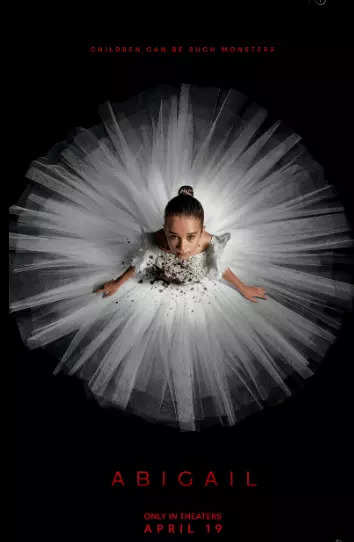
 Movie Reviews1 week ago
Movie Reviews1 week agoAbigail Movie Review: When pirouettes turn perilous




